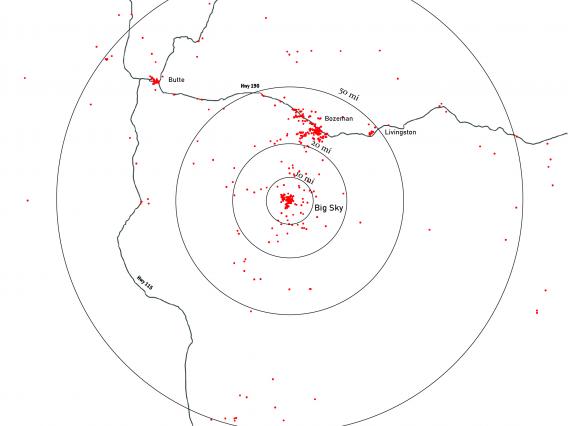Recreation Economy ‘Stretch Commutes’ in the Rocky Mountain West
As small recreation towns (gateway communities) become increasingly
popular places to live and invest, house prices are skyrocketing. For
people in the local workforce, it has become difficult to afford to
live where they work. This is triggering longer commutes as workers
seek housing in lower-priced areas nearby. Sometimes these commutes
qualify as “stretch commutes” (Bureau of Transportation) -- over 50
miles each way.
We have anecdotal evidence for this phenomenon, but which data will
tell a more complete story? This project studies 8 Rocky Mountain
gateway communities and uses Census LODES data to track jobs, and the
commutes they trigger.
The data show that the average number of jobs that trigger a ‘stretch
commute’ in these small towns is 10%. Do cities have it easier?
Looking at the stretch commutes of two nearby cities, Spokane, WA
(population 228,989) and Boise, ID (population 764,718), LODES data
shows that the average number of jobs that trigger a stretch commute
is 3%, which is significantly better.
Digging a bit deeper, we can look at where people commute to, and
compare house prices in those secondary areas with house prices in the
primary community. This clearly shows that there is an affordable
housing problem in these recreation economy communities, and local
workers must commute to seek lower-cost housing in nearby towns.
Big Sky MT Commuter Shed Dot Density


